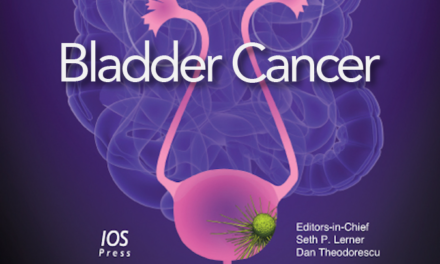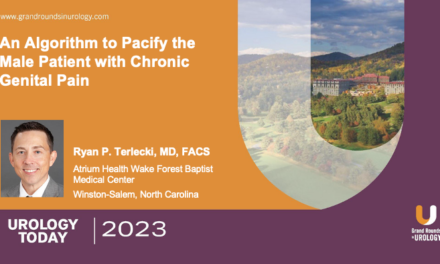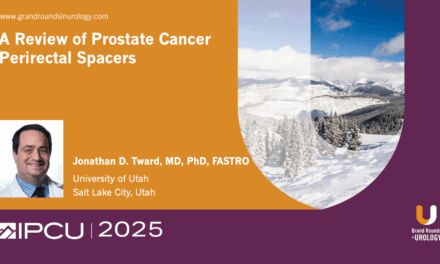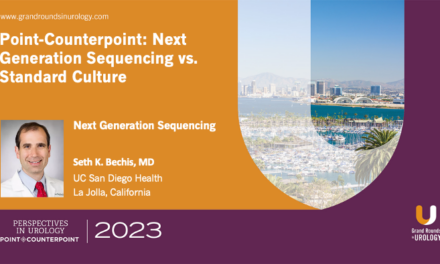Karen Sandell Sfanos, PhD, presented “The Microbiome as a Mediator of Prostate Carcinogenesis” for the Grand Rounds in Urology audience in August 2021.
How to cite: Sfanos, Karen Sandell. “The Microbiome as a Mediator of Prostate Carcinogenesis.” August 2021. Accessed Jan 2026. https://grandroundsinurology.com/the-microbiome-as-a-mediator-of-prostate-carcinogenesis/
Summary:#
Karen Sandell Sfanos, PhD, Associate Professor of Pathology, Oncology, and Urology at Johns Hopkins University, the Sidney Kimmel Comprehensive Cancer Center, and the Brady Urological Research Institute, presents and explains the results of a study conducted in her lab on the ability of bacterial infections to cause oncogenic TMPRSS2:ERG gene fusions. She begins by looking at proliferative inflammatory atrophy (PIA), which has been proposed as a risk factor that may play a key role in the development of prostate cancer (PCa). Dr. Sfanos then discusses two Science articles on the recurrent fusion of TMPRSS2 and ETS transcription factor genes in PCa and how Escherichia coli induces DNA double-strand breaks in eukaryotic cells. Both of these articles discuss colibactin, which comes from E. coli and breaks DNA strands through DNA alkylation. Dr. Sfanos continues by analyzing a study on acute Escherichia coli prostatitis in previously healthy young men which found that over 70% of the E. coli isolate strains in patients with prostatitis contained the colibactin gene, leading directly to the hypothesis of her own study. She studied a series of cases that had active bacterial infections in the prostate at the time of prostatectomy, finding a high frequency of ERG expression in PIA lesions undescribed in scientific literature, that ERG positive PIA lesions are often found with early invasive micro adenocarcinoma, that colibactin producing bacteria were in the infected prostates, and that colibactin induces DSB at TMPRSS2 and ERG loci. Dr. Sfanos concludes that bacterial prostatitis should be considered as a risk factor for prostate carcinogenesis and that prostate infections may contribute to other oncogenic events. Dr. Sfanos then participates in a Q&A session featuring such topics as the protective potential of some of the isolates that may not be producing colibactin, research on inhibitors, and how urologists may use this information.
For more in-depth discussions and educational features on the role of bacterial infections in carcinogenesis, visit our Microbiome & Urologic Infection Learning Center.
ABOUT THE AUTHOR
Dr. Karen Sandell Sfanos is an Associate Professor of Pathology, Oncology, and Urology at Johns Hopkins University School of Medicine, the Sidney Kimmel Comprehensive Cancer Center at Johns Hopkins, and the Brady Urological Research Institute. She earned a Bachelor’s and a Master’s degree at the Florida Institute of Technology in Melbourne, Florida, and a PhD from the Cellular and Molecular Medicine graduate program at The Johns Hopkins University School of Medicine in Baltimore, Maryland. Dr. Sfanos completed a postdoctoral fellowship in the Department of Pathology at Johns Hopkins before joining the faculty in 2011. The Sfanos Laboratory studies the influence of the human microbiome, prostate infections, and chronic inflammation on prostate disease. Ongoing studies in the lab focus on inflammatory factors in the prostate tumor microenvironment and the influence of the microbiome (both gastrointestinal and genitourinary) on prostate cancer development, progression, and/or resistance to therapy.




